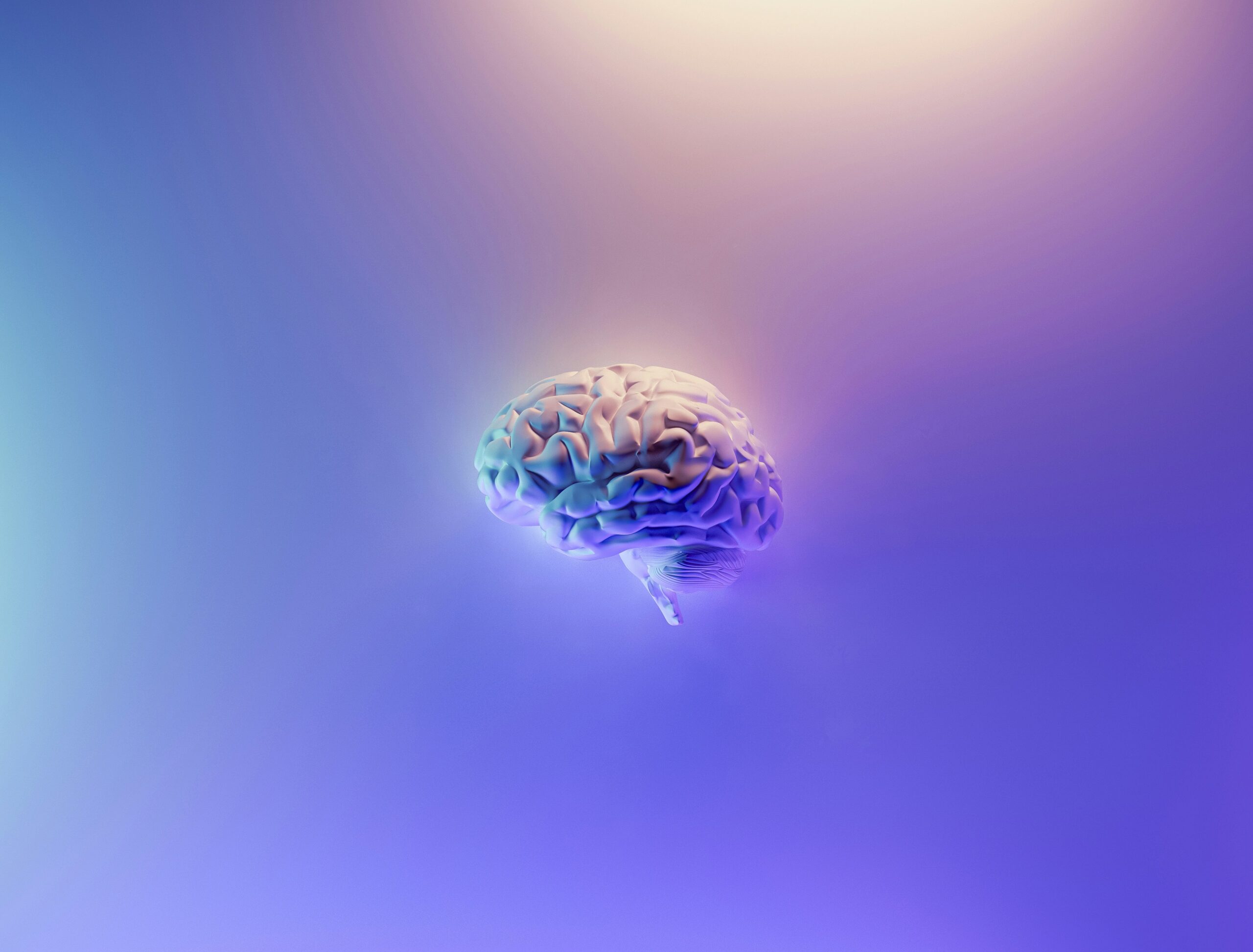In this article, we delve into the fascinating world of age-related memory decline and its impact on long-term memory. We explore the intriguing question of whether our memory abilities change as we grow older and delve into the effects it has on our stored memories. Join us as we uncover the research and provide in-depth coverage on this important topic. So, grab a cup of coffee, sit back, and let's embark on this enlightening journey together!
Understanding Age-Related Memory Decline
Defining age-related memory decline
Age-related memory decline refers to the natural changes that occur in memory function as we age. It is a normal part of the aging process and typically manifests as difficulties in remembering names, events, or details that were once easily recollected. This decline in memory performance is due to various factors, including changes in brain structure and function, as well as alterations in neurotransmitter systems.
Differentiating normal forgetfulness and memory decline
It is crucial to distinguish between normal forgetfulness and age-related memory decline. Normal forgetfulness occurs from time to time and does not significantly impact daily life. On the other hand, age-related memory decline is more persistent and can have a noticeable effect on one's ability to recall important information. While occasional forgetfulness is common, memory decline becomes a concern when it interferes with daily activities and impairs a person's overall cognitive function.
Symptoms and signs of age-related memory decline
Age-related memory decline may manifest in several ways. Common symptoms include difficulty remembering recent events, misplacing objects more frequently, trouble recalling names or faces, and a general sense of forgetfulness. Individuals experiencing memory decline may also have challenges learning new information or following conversations. These symptoms can vary in severity and often become more apparent as one gets older.
Conceptualizing Long-Term Memory

Defining long-term memory
Long-term memory is a form of memory storage that allows individuals to retain information for an extended period, ranging from days to years or even a lifetime. It is divided into three main components: episodic memory, which pertains to personal experiences and events; semantic memory, which involves general knowledge and facts; and procedural memory, which governs motor skills and learned routines.
Three components of long-term memory: episodic, semantic, and procedural
Episodic memory encompasses the recollection of personal experiences and specific events in one's life. It involves remembering details like time, place, emotions, and context. Semantic memory, on the other hand, deals with general knowledge and information that is not tied to a particular moment or personal connection. This includes facts, concepts, and language. Procedural memory relates to the retention of skills and abilities, such as riding a bike or playing an instrument.
Factors influencing long-term memory retention
Several factors impact long-term memory retention. One crucial factor is the strength of encoding during the initial learning process. The more attention and effort one invests in encoding information, the more likely it is to be retained in long-term memory. Emotional significance and personal relevance also play a role in memory consolidation. Additionally, sleep, nutrition, and overall cognitive health can influence the ability to retain information in long-term memory.
Neurological Basis of Memory

Role of hippocampus in memory formation
The hippocampus plays a vital role in memory formation and consolidation. It is located in the medial temporal lobe and serves as a crucial hub for encoding and retrieving memories. The hippocampus helps convert short-term memories into long-term memories by facilitating the transfer and storage of information in various brain regions. Damage or dysfunction in the hippocampus can lead to memory impairments, highlighting its significant role in the memory process.
Mechanisms of memory consolidation and storage
Memory consolidation is the process by which newly acquired information is stabilized and stored in long-term memory. It involves various mechanisms, including synaptic plasticity, neural circuit reorganization, and the strengthening of connections among neurons. During sleep, memories are thought to be actively consolidated, as the brain consolidates and integrates information processed during wakefulness. This consolidation process helps reinforce memories and increase their longevity.
Neurotransmitters involved in memory processes
Several neurotransmitters are involved in memory processes. Acetylcholine, for instance, plays a crucial role in attention, learning, and memory formation. Deficiencies in acetylcholine have been linked to memory impairments. Another neurotransmitter, glutamate, is involved in synaptic plasticity and the strengthening of connections between neurons, thereby facilitating memory consolidation. Dopamine and serotonin also contribute to memory processes, influencing motivation, mood, and the salience of memories.
Physiological Changes in Aging Brain

Brain structure changes with age
The aging brain undergoes various structural changes that can impact memory function. These changes include reductions in brain volume, particularly in the prefrontal cortex and hippocampus, which are critical for memory processes. Additionally, there is an increase in the presence of white matter lesions and a decline in the density of neurotransmitter receptors. These age-related changes can affect communication between brain regions and compromise memory-related functions.
Impact of aging on neuronal function
Aging is associated with changes in neuronal function that can contribute to memory decline. Neurons in the aging brain exhibit decreased metabolic activity, diminished synaptic plasticity, and impaired cellular signaling. These alterations can result in reduced information processing efficiency and hinder the encoding and retrieval of memories. Additionally, age-related oxidative stress and inflammation can further compromise neuronal function and contribute to memory decline.
Effect of aging on neurotransmitter systems
Neurotransmitter systems are also affected by the aging process, which can impact memory function. For example, age-related declines in acetylcholine production and release have been linked to memory impairments, particularly in Alzheimer's disease. Changes in the dopamine and serotonin systems may affect motivation and mood, which can indirectly influence memory processes. Maintaining healthy neurotransmitter function is vital for preserving memory function as we age.
Age-Related Memory Decline and Long-Term Memory

Investigation into effects of age-related memory decline on long-term memory
Research has explored the relationship between age-related memory decline and long-term memory. While age can affect memory performance, long-term memory itself is generally well-preserved in healthy aging individuals. However, older adults may experience difficulties retrieving information from long-term memory or rely more heavily on semantic memory rather than episodic memory. This suggests that the retrieval and access to stored memories may be more affected by age-related decline than the memory storage itself.
Contrasts between long-term memory retention in younger and older people
When comparing younger and older individuals, there are differences in long-term memory retention. Younger adults tend to show better retrieval of episodic memories, whereas older adults may excel in semantic memory tasks. Older individuals often rely on prior knowledge and schemas to make sense of new information, compensating for potential retrieval difficulties. However, declines in episodic memory can still occur with age, especially in the context of significant cognitive impairment or neurodegenerative diseases.
Pattern of long-term memory decline with age
The pattern of long-term memory decline with age can vary among individuals. While some older adults may experience minimal decline, others may exhibit more noticeable impairments. The decline is typically gradual and can involve difficulties in learning new information, remembering recent events, or recalling specific details. It is important to note that age-related memory decline does not inevitably lead to severe cognitive impairment or dementia, but it may increase the risk of such conditions.
Cognitive Processes Involved in Memory Decline

Effect of aging on attention and memory encoding
Aging can impact attention and memory encoding processes. Older adults may experience reduced attentional resources, making it more challenging to focus on relevant information and ignore distractions. Consequently, this can influence the encoding of new memories, leading to difficulties in retaining information. Strategies such as maintaining a conducive environment, using memory aids, and adopting effective study techniques can help mitigate these age-related changes and enhance memory encoding.
Changes in memory retrieval processes with age
Memory retrieval processes can be affected by aging. Older adults may experience slower retrieval speeds, difficulties with source memory (remembering the context of a memory), and an increased susceptibility to interference. These changes can result in the “tip-of-the-tongue” phenomenon or the feeling of knowing without fully retrieving the desired information. Despite these challenges, older adults often display preserved semantic memory and can utilize retrieval cues to support memory recall.
Role of working memory in age-related memory decline
Working memory, which involves the temporary storage and manipulation of information, plays a crucial role in memory decline with age. Older adults may experience challenges in tasks that require holding and updating multiple pieces of information simultaneously. These difficulties can impact learning, problem-solving, and memory-related activities. Engaging in memory-training exercises, practicing cognitive strategies, and maintaining an active lifestyle can help preserve and improve working memory performance.
Role of Diseases in Age-Related Memory Decline
Influence of Alzheimer's and dementia on long-term memory
Alzheimer's disease and other forms of dementia significantly impact long-term memory. These conditions are characterized by progressive cognitive decline, including severe impairments in episodic memory and, later, semantic memory. The accumulation of abnormal proteins, such as amyloid beta and tau, leads to brain cell damage and disrupts memory processes. Early detection, appropriate medical interventions, and supportive care are crucial in managing memory decline associated with Alzheimer's and dementia.
Case study: Parkinson's disease and memory
Parkinson's disease, primarily known for its motor symptoms, can also affect memory function. Individuals with Parkinson's disease often experience difficulties in episodic memory, particularly in recalling details of past events or retaining new information. The underlying neurodegenerative processes, involving the loss of dopamine-producing neurons, contribute to memory impairments. Specific medication adjustments, memory-enhancing strategies, and multidisciplinary care approaches can help support memory function in Parkinson's disease.
How stroke influences long-term memory
Stroke, which occurs when blood flow to the brain is interrupted, can have significant consequences on long-term memory. Depending on the location and severity of the stroke, memory impairments can vary. Memory loss after a stroke may involve both episodic and semantic memory deficits. Neurorehabilitation, including occupational and speech therapy, can aid in the recovery of memory function following a stroke. Timely intervention and a comprehensive rehabilitation plan are essential for optimizing memory outcomes.
Mitigating Age-Related Memory Decline
Importance of regular cognitive exercise
Engaging in regular cognitive exercise is essential for mitigating age-related memory decline. Activities such as puzzles, memory games, reading, and learning new skills help stimulate and challenge the brain. These exercises can enhance neural plasticity, strengthen neural connections, and improve memory function. Collaboration with cognitive training programs, online resources, and community-based memory improvement programs can provide varied and enjoyable cognitive stimulation for older adults.
Role of a balanced diet
Maintaining a balanced diet is crucial for supporting memory function in older adults. Nutrients such as omega-3 fatty acids, antioxidants, vitamins B6 and B12, and folate have been linked to cognitive health and memory performance. A diet rich in fruits, vegetables, whole grains, lean proteins, and healthy fats can provide the necessary nutrients for optimal brain function. It is important to consult with a healthcare professional or nutritionist to develop a personalized diet plan that addresses individual needs and promotes memory health.
Effects of medical treatments and therapies on memory in older adults
Certain medical treatments and therapies can have beneficial effects on memory in older adults. For example, pharmacological interventions targeting specific neurotransmitter systems, such as acetylcholinesterase inhibitors for Alzheimer's disease, may help alleviate memory impairments. Non-pharmacological interventions, including cognitive rehabilitation, cognitive-behavioral therapy, and memory training programs, can also provide valuable support for memory-enhancement. A comprehensive approach that combines medical treatments, therapies, and lifestyle modifications can optimize memory outcomes in older adults.
Future Research Directions
Need for further investigations into age-related memory decline
Despite significant progress in understanding age-related memory decline, further research is necessary to explore its underlying mechanisms fully. Investigating the complex interplay between genetic, environmental, and lifestyle factors can provide valuable insights into individual differences in memory decline. Longitudinal studies tracking memory changes over extended periods and utilizing advanced neuroimaging techniques may help identify early markers or potential interventions for age-related memory decline.
Implication of recent discoveries and techniques
Recent discoveries and technological advancements hold great promise in advancing our understanding of age-related memory decline. Advances in neuroimaging techniques, such as functional magnetic resonance imaging (fMRI) and positron emission tomography (PET), allow for the examination of brain function and connectivity associated with memory processes. Furthermore, developments in genetic and molecular research shed light on the role of specific genes and proteins in memory decline. Integrating these discoveries with clinical practice can lead to more accurate diagnoses and personalized interventions.
Emerging research areas in age-related memory decline
Emerging research areas in age-related memory decline encompass a wide range of investigations. For example, the exploration of cognitive reserve and brain plasticity investigates how individual differences and lifestyle factors influence memory decline and cognitive resilience in older adults. Additionally, studies on non-invasive brain stimulation techniques, such as transcranial magnetic stimulation (TMS) and transcranial direct current stimulation (tDCS), are exploring their potential in enhancing memory function. Further research in these areas has the potential to revolutionize our understanding and management of age-related memory decline.
Conclusions on Age-Related Memory Decline and Long-Term Memory
Summary of impacts of age-related memory decline on long-term memory
Age-related memory decline can affect various aspects of long-term memory. While long-term memory storage is generally well-preserved in healthy aging individuals, difficulties may arise in retrieving information or relying on specific memory systems. Episodic memory, which encompasses personal experiences, can be more vulnerable to decline with age compared to semantic memory. However, the severity of memory decline varies among individuals and is influenced by factors such as overall health and the presence of neurodegenerative diseases.
Implications for elderly care and treatment
Understanding age-related memory decline has significant implications for elderly care and treatment. Older adults experiencing memory decline may benefit from specialized care programs that focus on memory enhancement and cognitive support. Creating memory-friendly environments, promoting cognitive exercises, and fostering social engagement can help maintain cognitive function and improve overall well-being. Collaborative efforts between healthcare professionals, caregivers, and community organizations are vital in developing comprehensive care strategies for individuals affected by age-related memory decline.
Closing thoughts on managing age-related memory decline
Managing age-related memory decline requires a holistic approach that considers both lifestyle modifications and medical interventions. Engaging in regular cognitive exercise, maintaining a balanced diet, and staying socially and mentally active can support memory function in older adults. Additionally, medical treatments, therapies, and emerging research areas hold the promise of improving memory outcomes and enhancing quality of life for individuals experiencing memory decline. By understanding the complexities of age-related memory decline, we can foster optimal brain health and promote successful aging.
